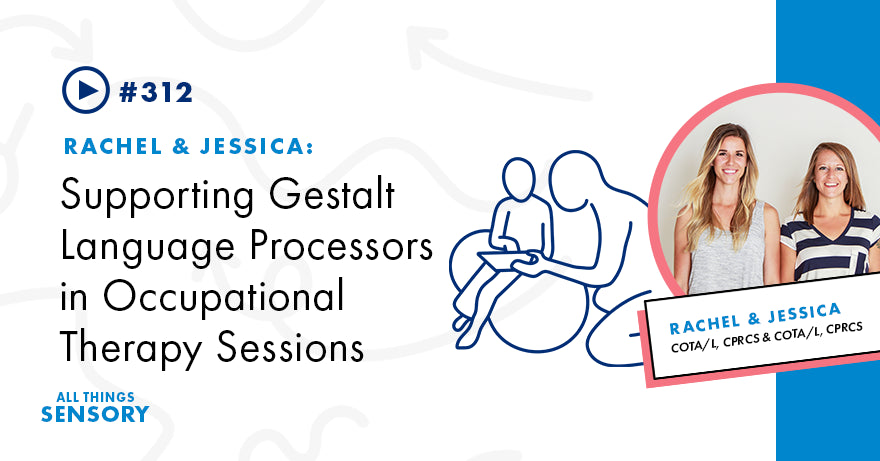Your Cart is Empty

Today’s episode is an “interview” with Jessica! We’re chatting all about Gestalt Language Processing, using AAC in occupational therapy sessions, collaborating with speech therapists, transitions with non-speaking / pre-verbal clients, and more!
Although Jessica is not an expert in language and communication, she works closely with an SLP who has extensive experience in GLP specifically. Everything she shares is from her personal and professional experiences. She knows that she has more to learn in this area and is always looking for new ways to help her clients!
We’d love to answer your questions on the podcast! Fill out this form -> https://harkla.typeform.com/to/ItWxQNP3
All Things Sensory Podcast Instagram
Harkla Website - Shop Sensory Products!
Episode 266 Gestalt Language Processing
Gestalt Language Processing (GLP) significantly influences how children learn and use language. This blog explores its impact on language acquisition and effective strategies for supporting young learners.
Gestalt Language Processing (GLP) refers to a unique way some children process language. Unlike the traditional method, where children learn language incrementally—starting with single words and gradually building up to more complex phrases—GLP learners acquire language in chunks or scripts.
For instance, a GLP might recognize the phrase "throw the ball" as a single unit instead of learning "throw" and "ball" separately. This can make traditional teaching and communication methods less effective.
Working with children who process language gesturally involves adapting communication strategies to align with their unique way of understanding language. Here are some key strategies:
Occupational therapists (OTs) can provide insights into sensory preferences and needs, while SLPs offer expertise in language development and communication strategies. Here are some collaborative approaches:
Follow the Child's Lead: Pay close attention to the child's interests and preferences. Incorporate activities the child enjoys into therapy sessions to build rapport and make the child feel safe.
Create a Safe Environment: Modify the environment to reduce sensory overload. This could mean using a smaller room with fewer distractions or dimming the lights.
Use Simple, Clear Phrases: Communicate using simple phrases that the child can understand and eventually use themselves.
Visual Schedules: Visual schedules help children understand the sequence of activities and transitions, making them feel more secure and in control.
Working with Gestalt Language Processors requires patience, creativity, and a willingness to adapt traditional methods to fit their unique needs. By understanding GLP and utilizing appropriate strategies, practitioners can significantly improve these children's ability to communicate and interact with the world around them.
BORING, BUT NECESSARY LEGAL DISCLAIMERS
While we make every effort to share correct information, we are still learning. We will double check all of our facts but realize that medicine is a constantly changing science and art. One doctor / therapist may have a different way of doing things from another. We are simply presenting our views and opinions on how to address common sensory challenges, health related difficulties and what we have found to be beneficial that will be as evidenced based as possible. By listening to this podcast, you agree not to use this podcast as medical advice to treat any medical condition in either yourself or your children. Consult your child’s pediatrician/ therapist for any medical issues that he or she may be having. This entire disclaimer also applies to any guests or contributors to the podcast. Under no circumstances shall Rachel Harrington, Harkla, Jessica Hill, or any guests or contributors to the podcast, as well as any employees, associates, or affiliates of Harkla, be responsible for damages arising from use of the podcast.
Keep in mind that we may receive commissions when you click our links and make purchases. However, this does not impact our reviews and comparisons. We try our best to keep things fair and balanced, in order to help you make the best choice for you.
This podcast should not be used in any legal capacity whatsoever, including but not limited to establishing “standard of care” in a legal sense or as a basis for expert witness testimony. No guarantee is given regarding the accuracy of any statements or opinions made on the podcast.
Comments will be approved before showing up.